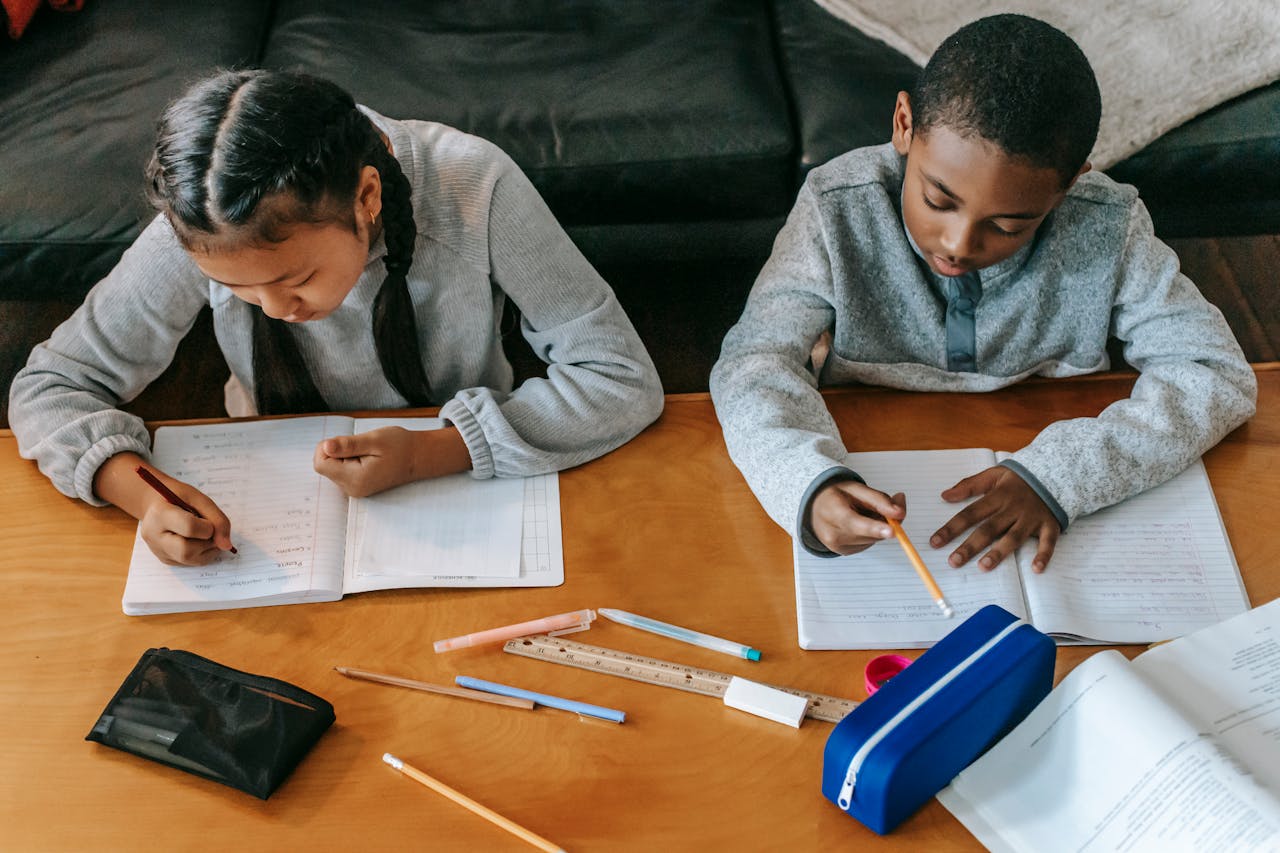What are the responsibilities of the host family with the exchange student staying at their home?
Homestays are expected to provide homes in a proper state of repair, cleanliness, and with adequate heating and lighting.
- Students of the same mother tongue are not lodged in the same home at the same time unless a specific request is made by the students.
- Hosts must ensure that an adult is available to receive students on the first arrival.
- The bedroom should be sufficiently spacious, with natural light, equipped with an adequately sized bed, a mirror, and adequate hanging and drawer space for clothes. A table with lamp and chair for private study should be provided when possible. It should be adequately heated. Towels should be provided and the room should be cleaned at least once a week. Bed linen should be provided and changed once a week. An adequate supply of duvets or blankets should be available. Students are responsible for making their beds every day and keeping their rooms tidy.
- Students will expect a daily bath or shower. Please advise the student as to when this can be taken.
- Students should be able to close (ideally lock or bolt) the door of their room to give them a measure of security and privacy
- Please advise your student about laundry arrangements. It is always appreciated when the student’s laundry is included in the household wash, or the student is allowed to use the household washing facilities. For Students under 18, the Host will provide a free laundry service once a week.
- Students are expected to have their own front-door key for access to their accommodation for the period of stay. The key is to be returned to the Host at the end of the stay.
- Access to wireless or broadband internet at no extra charge to the student
- Hosts are expected to show the students the route to the school, including buses, etc.
It is very important that the students have their meals with the hosts whenever possible.
BREAKFAST: you should offer a substantial breakfast including fruit juice, yogurt, cereal, toast, pastries, tea, or coffee.
DINNER: you should offer a well-balanced diet, including protein (e.g.: meat, fish, etc), vegetables, and carbohydrates (pasta, rice, potatoes, bread, etc). Students should try to fit in with your mealtimes, although some flexibility is required if students wish to have their meal earlier or later occasionally. Students should be made aware that they must inform you if they wish to miss a meal, or a meal can be left for the student to eat later in the evening.
You will be informed of any dietary requirements or allergies students may have.
ILLNESS. If you notice that a student is unwell, we request that you call the Accommodation Officer to inform us. It is highly recommended that students register with a GP within the first couple of weeks of arriving in the UK if they are entitled to.
SAFETY. Please explain to students any special safety rules that you may have in your home. The use of electrical/gas equipment, fire precautions, and safety should be explained fully.
Homestay accommodation is about providing a home, not just beds. Students should be welcomed as a member of the family; eating together and sharing the common living areas.
Students come to London from all over the world to study English as a foreign language. English will normally be the language of communication within the homestay. They choose homestays because they wish to learn about British life and culture. Integration within a family provides students with an ideal opportunity for such an experience and to improve their English. We have found that families who put the most energy into hosting students also get the greatest satisfaction, and build long-term relationships.
For most of the students, it is their first time in England. It is therefore important to be helpful, understanding and welcoming. Being aware of any cultural differences is extremely helpful.
-By Andras Zareczky from LSI Education
What are the most important things to have ready when preparing your home to receive an exchange student from another country?
- Do a deep clean of the entire house as well as the student’s bedroom and bathroom.
- Tidy up and store away any objects and furniture that may take up too much space in their room.
- Decorate their room with a painting, a plant, or anything else that creates a warm and welcoming atmosphere.
- Give them a tour of the entire house and not only their bedroom and bathroom. Make them feel at home.
- Inform them on where to find specific items they may need such as extra towels.
- Establish rules and expectations from the beginning to avoid miscommunication. If there is a room in the house that you do not want them to go in, keep it locked, but explain why (i.e. it is your work office and you wish to separate your workspace from the rest of the house).
-By Louiza Stylianou, from College Life
What kind of space does an exchange student must have when staying at a host family’s home?
We ask that our hosts provide a private room for all of our long-term (full academic year) students. The room should be no less than a 10’x10’ room. The room should contain a bed, dresser, desk, and adequate lighting. We recommend at least a ceiling or floor lamp, a desk lamp, and a nightlight. The bed should have full bedding. The student does not have to have a private bathroom, but should only share with one or two other people. We ask that our hosts provide toiletries for the student at least when they arrive, and if possible, for the entire stay. If a student has special requests, then they can purchase those items on their own. Laundry facilities and detergent should also be provided. Of course, high-speed internet access is also a requirement in this age of technology. While central air is not required, it is preferred. If the house does not have central air, then a fan or window AC unit is required. By law, all bedrooms must have a smoke detector, there must also be a smoke detector outside each cluster of bedrooms as well as in the kitchen. Additionally, there must be at least one carbon monoxide detector per floor, possibly more depending on the size of the house.
-By Andrea Cribbs from Fairmont Private Schools
Which activities do you recommend the host family to prepare for their student exchange guest?
Being a homestay host for international students is a very rewarding experience. You have the opportunity to meet people from all over the world, learn about other cultures, and have a real impact on the lives of your guests.
Preparing your home for student exchange guests is best done in advance.
Providing a safe and welcoming environment is important. Accommodation offered to students will need to be clean and in good repair (it must comply with local zoning laws/building regulations and not be under renovation).
As a general rule, each guest should have a clean private room with a bed, study desk, and chair, study light, somewhere to store their clothes and belongings, and heating/cooling. The bedroom door should be fitted with a lock. Making up the bed with fresh linen and having a blanket and towel sitting on the bed is also inviting for guests to see when they arrive.
Students will need access to communal areas of the house such as the bathroom, living room, laundry, and kitchen. It’s a good idea to dedicate some space for your guests to store food and snacks in the kitchen, particularly if they will be preparing their own meals.
Providing an “orientation” can help put your guests at ease. It’s a good opportunity to introduce students to the area, let them know about public transport options, and give them some safety tips for when they’re out and about. At the Australian Homestay Network (AHN), we also recommend hosts create some “house rules” around mealtimes, keeping rooms and shared spaces clean, having friends over, etc. Discussing these as part of the initial orientation is ideal so there are clear expectations from the beginning of the stay.
All AHN hosts and students are matched according to preferences and shared interests. We are able to pass on any special requests and info about activities the student may want to experience so the host can plan for these in advance.
-By The Australian Homestay Network
What are the good practices expected from the host family when having an exchange student to make him/her feel at home?
Communicate from the first day and keep communicating. The exchange student’s home life is probably quite different from yours. From daily activities to spaces used in the house, to where to hang towels, to what you eat — the child will feel much more “at home” and comfortable if s/he knows how to do things and what to expect.
-By Jennifer Bode from Arizona Lutheran Academy
In your experience, what are the do’s and don’ts when hosting an exchange student at home?
In my experience, there’s really no set way to approach hosting an exchange student as every family is different and every student is unique. If I could give some advice, however, I would recommend that you do sit down early with your student, let them know your house rules, what they can and can’t use, and then give them a tour to let them know where all the important and useful items are and how to use them e.g. your washing machine may be something you are happy for them to use but make sure to show them how to use it to avoid any difficult conversations about why it’s not working a few days later! Setting the ground rules early and having open communication is the key to a positive hosting experience.
As far as things I would advise host families not to do, I would recommend not to assume anything when it comes to your student’s understanding of what it is to live in your home and in your country and culture. Remember that home life in your student’s country could be completely different and this goes for everything from meal etiquette to simple things like how to turn on the shower. Be patient, take time to explain and you will be on your way to a happy homestay experience.
-Scott Baird from YES Canada
How do you navigate cultural and religious differences with your guest student?
Having an exchange student in your home, living, and learning as part of the family, is a great opportunity to expose children to world cultures. I encourage any family that can afford it to try. Most parents have had the experience of meeting their children’s friends and being surprised (pleasantly or not) by their behavior. In that situation, depending on the age of the children, a parent might “correct” or “praise” the visiting friend and explain how they expect their own children to behave in a similar situation.
Inviting someone with cultural and religious differences to live in your home is just a more intense experience. Any family that undertakes hosting a visitor from another country must be respectful and observant of their guest’s traditions. Over a meal, for example, ask your exchange student to share some of their different religious or cultural rituals. All family members will learn from polite, respectful dialogue. As part of the conversation, parents should explain to their exchange student their own religious and cultural traditions to facilitate the “exchange” of ideas and respect. A guest is a guest no matter where they’re from and should be treated accordingly.
We have this story on our site that may be useful.
-Kyle McCarthy from Family Travel Forum
What is the recommendation to be prepared and deal with an emergency with the guest student staying at your home?
Generally, emergencies fall under the category of medical issues. It is important for host families to be proactive before the medical emergency happens. A good idea is to have a folder with the student’s following information:
- List of primary care doctors that accept the student’s insurance
- Copy of the student’s medical records
- Copy of the student’s insurance card (photocopy and cellphone photo)
- Copy of the student’s Parental Consent Form giving permission to host family to seek medical attention
First and foremost, use your judgment and treat the situation as if the student was your own child by always seeking medical attention first, whether it is the emergency room, nearby walk-in center, or medical doctor office, and then calling the agency representative (Local Coordinator) to inform them of the emergency.
The agency will contact the biological parents to inform them and keep them up to date of the situation. Continue to communicate with the agency during the emergency and ensure to schedule any follow-up appointments if needed.
When seeking an agency to host an international student, the key is to choose one that will provide you support when any difficult issue may arise including emergencies. AIEP prides itself on the support we provide our host families, students, and biological parents and is always ready to assist.
If you are interested in hosting an international middle/high school student, contact AIEP Host Families, 203.992.AIEP or visit us at aiepusa.com.
-Daisy Benson from Apex International Education Partners
How do you recommend overcoming a language barrier, how can you help your student?
We recommend overcoming a language barrier for our students by encouraging the student to come to the US as prepared as possible by taking as many English classes as they can outside of what is provided by their school, speaking English on a regular basis-this may include finding other English speakers in their area and purposely finding time to meet with them, reading English written books, watching English speaking movies, shows, speeches and focus on their grammar, reading comprehension and writing skills. It helps if students take courses outside of school to improve their English abilities before they arrive in the US.
Once in the US, we encourage students to only speak English even if their friends speak the same native language as they do, don’t be afraid to ask for help from their teachers, attend writing labs/ESL classes their school may offer, and if necessary take additional tutoring assistance for help. Many students become dependent on translators so we discourage using them except for looking up really difficult or unfamiliar words.
In addition, it helps if students listen carefully and pay attention to what is being said. We find the most successful students who can overcome language barriers will also try to make English speaking friends and many times these friends can help too.
Our host families play a big part in aiding students with improving their English too. We encourage only English to be spoken in the home with the host family members, ask that students join family events, intentionally sit down and spend time with their host family and talk about a variety of endless topics, like cultural differences, food, family, nuances/slang of the English language that is unique to the US, etc.
-Vicky Shillington from IPERC Academy
In terms of student & host family expenses, who is expected to pay for what?
While raising teens can be expensive, hosting an exchange student doesn’t have to be!
Exchange students come with their own medical insurance and are responsible for any medical expenses their insurance might not cover. We even have a dedicated insurance coordinator to make sure everything is paid promptly and easily.
Exchange students are responsible for their personal expenses such as clothing, school fees, sports fees & equipment, cell phone, entertainment, and personal items. Most exchange students pay expenses and/or get money periodically using a debit or credit card that is billed to their parents back home.
There are no fees to host an exchange student. We cover all the costs of screening your family, including your criminal background check.
The two things a host family provides are room and board. The room doesn’t have to be fancy—after all, the student comes to live as a member of your family, not a guest or boarder. Exchange students may share a bedroom with a host sibling, but they must have their own bed.
You don’t have to buy special or exotic foods for your exchange student. Part of their American experience is eating the same meals your family eats. When your exchange student grabs a burger with friends or has pizza with the team, the student pays their own check, so you’ll never have to provide an allowance.
While it doesn’t cost much to host, the rewards are great! Hosting is fun and educational for your entire family, and while the student will only be in your home for a limited time, they will remain in your heart for a lifetime.
-Kari Owens from International Cultural Exchange Services
What is the best way to deal with a resistant guest who doesn’t cooperate and doesn’t adjust to living with you?
For many foreign exchange students, moving overseas to study will be their first time living away from home.
Communication is probably the most important element of a successful homestay. Language barriers, culture shock, and homesickness can contribute to guests being a little uneasy when they first arrive. Being patient, flexible, and having an open mind goes a long way in helping your guests settle in.
Taking the time to talk to your international student – and showing them they are in a supportive environment – helps them feel welcome in your home as a member of the family and establishes the foundation for a good relationship.
Encouraging them to try new experiences, develop a social network, and become familiar with the local culture can also benefit their overall well-being.
As mentioned earlier, a friendly conversation about the house rules generally leads to a positive experience. If there are any issues we recommend taking the time to talk it out with the student. Misunderstandings, cultural differences, and adjusting to a new way of life are often contributing factors. Most problems can be resolved with a simple discussion.
-By The Australian Homestay Network
What are the top tips you can give us for supporting a homesick student staying at your home?
Talk a lot to each other. The more activities and conversations the student can participate in the better.
Let them know it is okay to be homesick and let them know they can talk about it to you, so they feel more comfortable. If a student can come to the host family and say they miss their family and know that they will understand and support them, the closer they will feel to the host family. Less time talking with family and friends in their home country.
-By Tonya Duncan from Educational Resource Development Trust (ERDT)
How do you help your guest student get involved locally?
We have local coordinators that live in each community to support host families and students upon arrival and throughout their time in Canada. Each local coordinator works with the families through the different stages and seasons that they will experience, and getting comfortable in their community is a big one.
Host families are encouraged to help students join local youth groups where they can interact and meet new friends (sometimes even with other host families with international students from other countries). Host parents also encourage students to volunteer at a number of organizations such as the food bank and sports clubs, just to name a few. If a host family belongs to a church, that is often a great source of community as well.
Last week we had a great story come to us of a Japanese student in Sudbury, Ontario that is volunteering 2 nights a week at a local business that makes and individually packages meals for 50-150 homeless people in the community. We were able to ask her why she does this, and her answer was that she has great friends now at the volunteer centre, and it has made her realize how fortunate that she is…no one wants to be homeless, and everyone deserves respect.
MLI Homestay is always looking for host families to host international students arriving to Canada. Please visit www.mlihomestay.ca for more information.
By Jodi Andersen from MLI Homestay
What if the relationship between you and your guest student isn’t working? How do you deal with that?
Communication is key
If you find it challenging to build up a good relationship with your guest student, try to communicate more with each other. We know that the language barrier can be a hurdle initially, but we promise you that it will get easier! Show interest towards your new family member, ask questions, and make sure the new guest feels at home.
Moreover, try to communicate your expectations and wishes in a way that is easy to understand. Address issues as soon as they occur to work on a solution together. Always be polite and respectful towards each other. If your guest student is expressing concerns, listen to the problem and offer your help when needed. Lastly, when you feel overwhelmed by the situation, don’t hesitate to consult your organization.
Family bonding activities
Planning family activities is a great way to get to know each other better. The more time you spend together, the closer you will feel. Ask your guest what kind of activities they like. This can be anything, from playing board games or going on a day trip. Furthermore, you can bring your new family member to traditional events or activities that you and your family like to do in your country.
Trust in timing
Another critical factor is timing. It takes some time for relationships to strengthen. Consequently, it would help if you gave you and your guest student enough time. Put yourself in the position of your guest student and think about how you would feel in a foreign country, far away from your family, and in a completely new environment. After a while, they will open up, overcome the language barrier and start feeling at home.
By Nele Marie Kühl from Asia Exchange
If you ever wondered what it would take to be a good host and what you can expect from this experience, I hope all the great advice provided in this article helped you get the insight you needed to finally make the decision to have an exchange student at home for a whole school year and enrich your cultural knowledge about other countries way of living.




